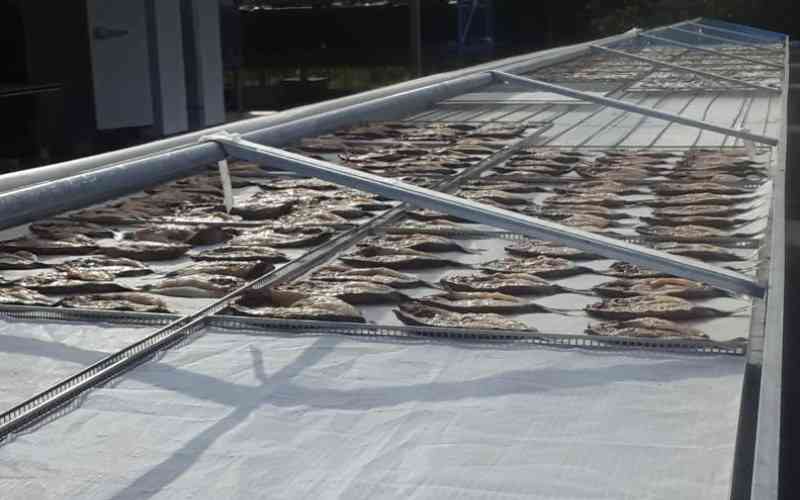×
The Standard e-Paper
Kenya’s Boldest Voice

Fish preservation through a solar drying-cooling technology value addition and Quality Assurance system [Standard]
Two state agencies and a German company yesterday unveiled a solar drying-cooling system for small-scale fishermen along the coast to help them reduce post-harvest losses.